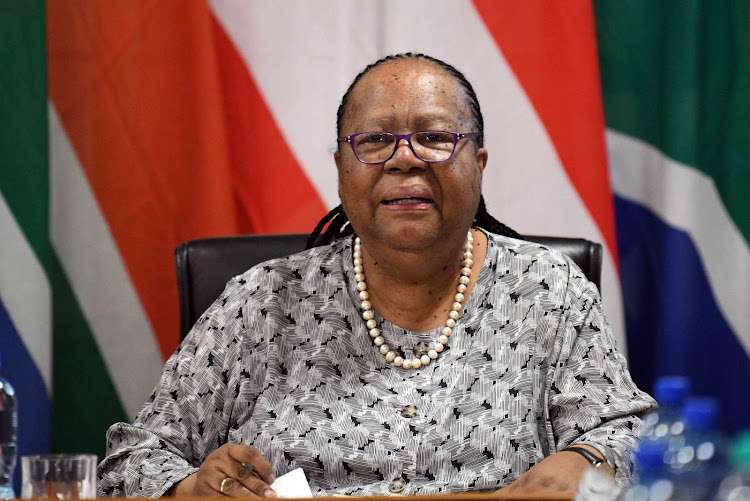South African universities may face a significant funding crunch as solidarity with Palestine in the ongoing Middle East conflict draws backlash from international donors.
Naledi Pandor, the country’s former International Relations Minister and ex-Minister of Science and Technology, has voiced concerns that universities severing ties with Israeli institutions risk losing crucial financial support.
In her keynote address at the Science Forum South Africa in Pretoria, Pandor underscored the challenges posed by the increasingly fraught geopolitical landscape. “South Africa’s support for the struggle for [Palestinian] sovereignty has resulted in some key research initiatives that rely on international funding facing the threat of funds being withdrawn,” she said.
Pandor cited reports that universities cutting ties with Israeli institutions linked to military actions in Palestine were being targeted for funding cuts. She called on the South African government to mitigate the impact on affected institutions and researchers by helping them identify alternative resources.
The Science Forum, co-hosted by South Africa’s Department of Science, Technology, and Innovation (DSTI) alongside the Science Diplomacy Capital for Africa initiative, carries the theme: Igniting Conversations about Science – Innovation and Science for Humanity.
Pandor emphasized that the forum must advance Africa’s scientific capabilities, calling for action rather than empty dialogue. “It must play a full role in advancing African capabilities and ensuring that Africa rising becomes a reality and not a populist slogan,” she urged.

Amid the discussions, the representative body for South Africa’s 26 public university vice-chancellors, Universities South Africa (USAf), confirmed that at least one university had experienced funding cuts over its stance on Gaza. However, USAf declined to elaborate, indicating that discussions among vice-chancellors were ongoing.
Salim Vally, an associate professor at the University of Johannesburg, criticized donors withdrawing funds as engaging in “academic blackmail.” He urged universities to hold firm to their principles.
“Universities must not be deterred and should remain true to their mission, which must be an ethical commitment to seeking the truth, social justice, human rights, anti-racism, solidarity, and knowledge that benefits humanity.”
Salim Vally
Global Fallout of Palestinian Support
The funding challenges facing South African universities mirror a broader wave of academic boycotts against Israel. Since its military actions in Gaza intensified in October, over 44,500 Palestinians have been killed, with widespread destruction reported, including the bombing of all universities in Gaza.
Israel has faced unprecedented backlash, with a growing number of European universities joining the academic boycott. Earlier this year, the International Science Council (ISC) updated its position on such boycotts. While reiterating its general opposition, the ISC stated exceptions could be made in cases of “clear and systemic violations of human rights.”
Vally described the situation as a litmus test for academics and intellectuals worldwide. He applauded Pandor’s efforts to address potential funding gaps and urged university management to adopt a principled stance, even at a cost. “Taking a principled stand often comes with sacrifice. South Africans who fought against our erstwhile apartheid regime and called on the world to boycott apartheid state institutions know this well,” he said.
Pandor’s warning highlights the precarious balance universities must strike between adhering to ethical commitments and ensuring financial stability. The former minister’s call for the DSTI to support institutions facing funding losses reflects an acknowledgment of the systemic inequalities within global academic partnerships.
The situation also underscores the broader implications of academic boycotts as tools for political protest. While some view them as essential for advocacy and change, others see them as hindrances to scientific collaboration and progress.
Pandor’s address and the subsequent discussions at the Science Forum stress the importance of fostering a scientific community that prioritizes humanity’s collective welfare.
READ ALSO: NPP Records 11.33% of Target Votes in Volta Region in 2024 General Elections























